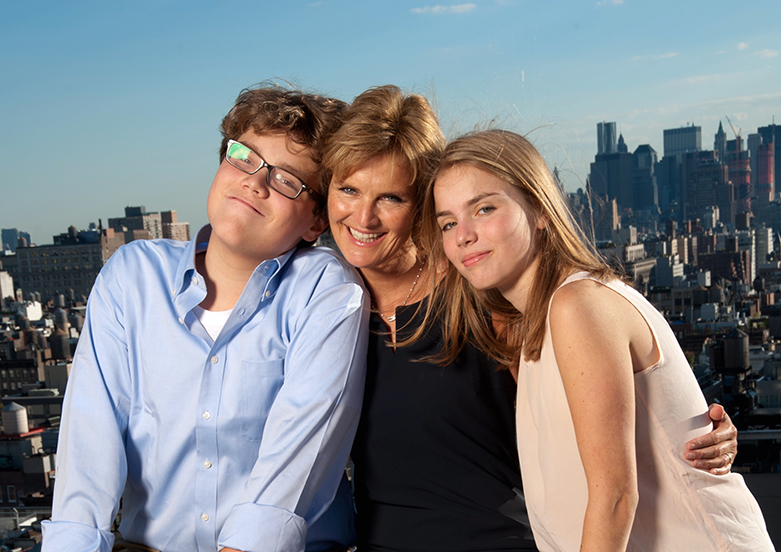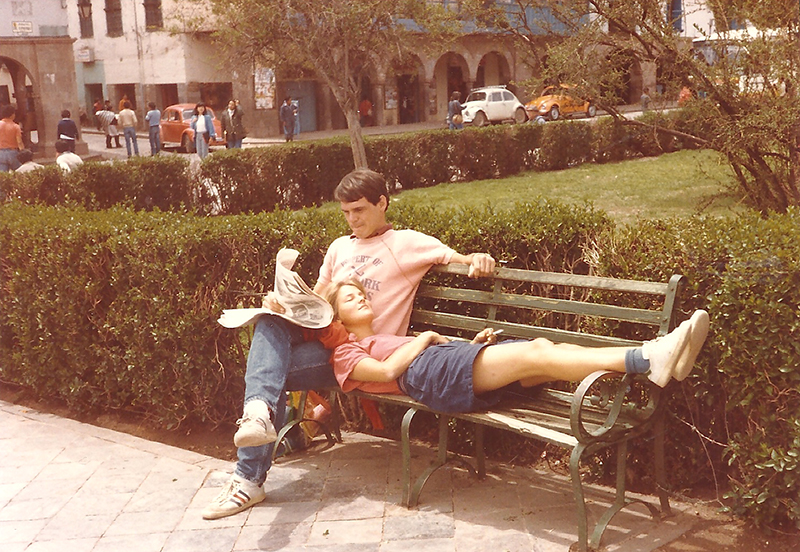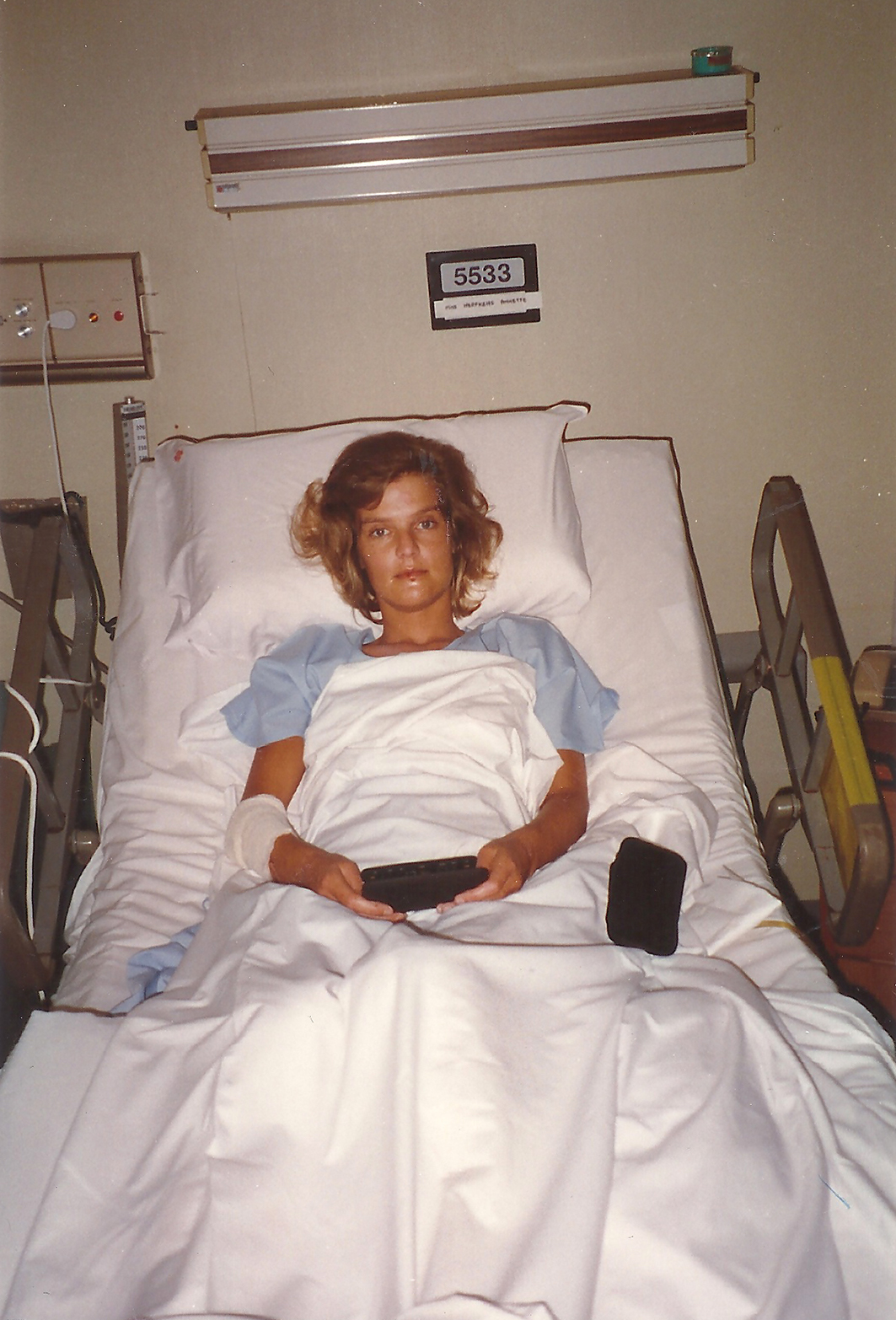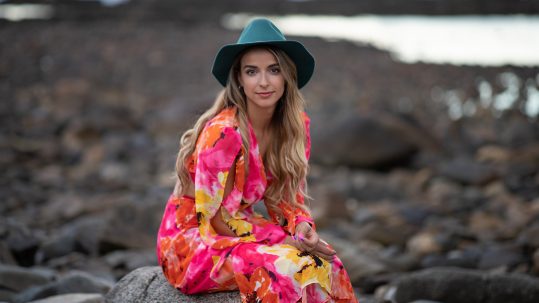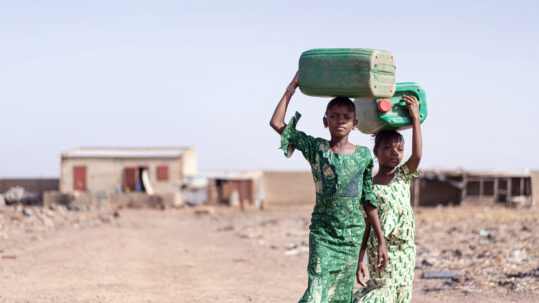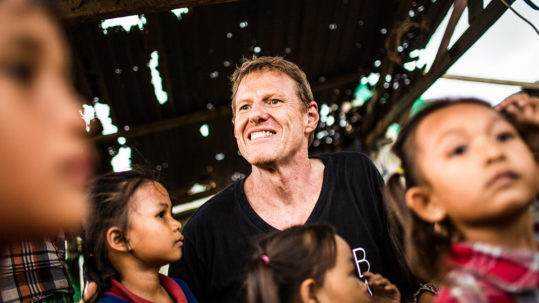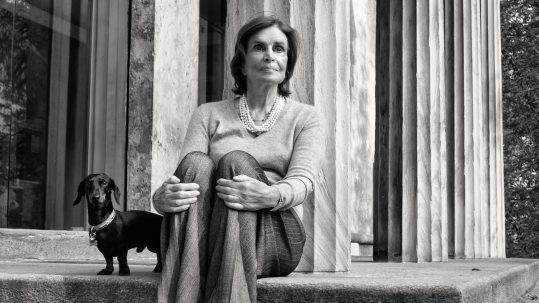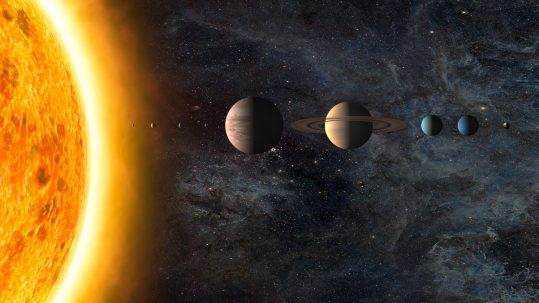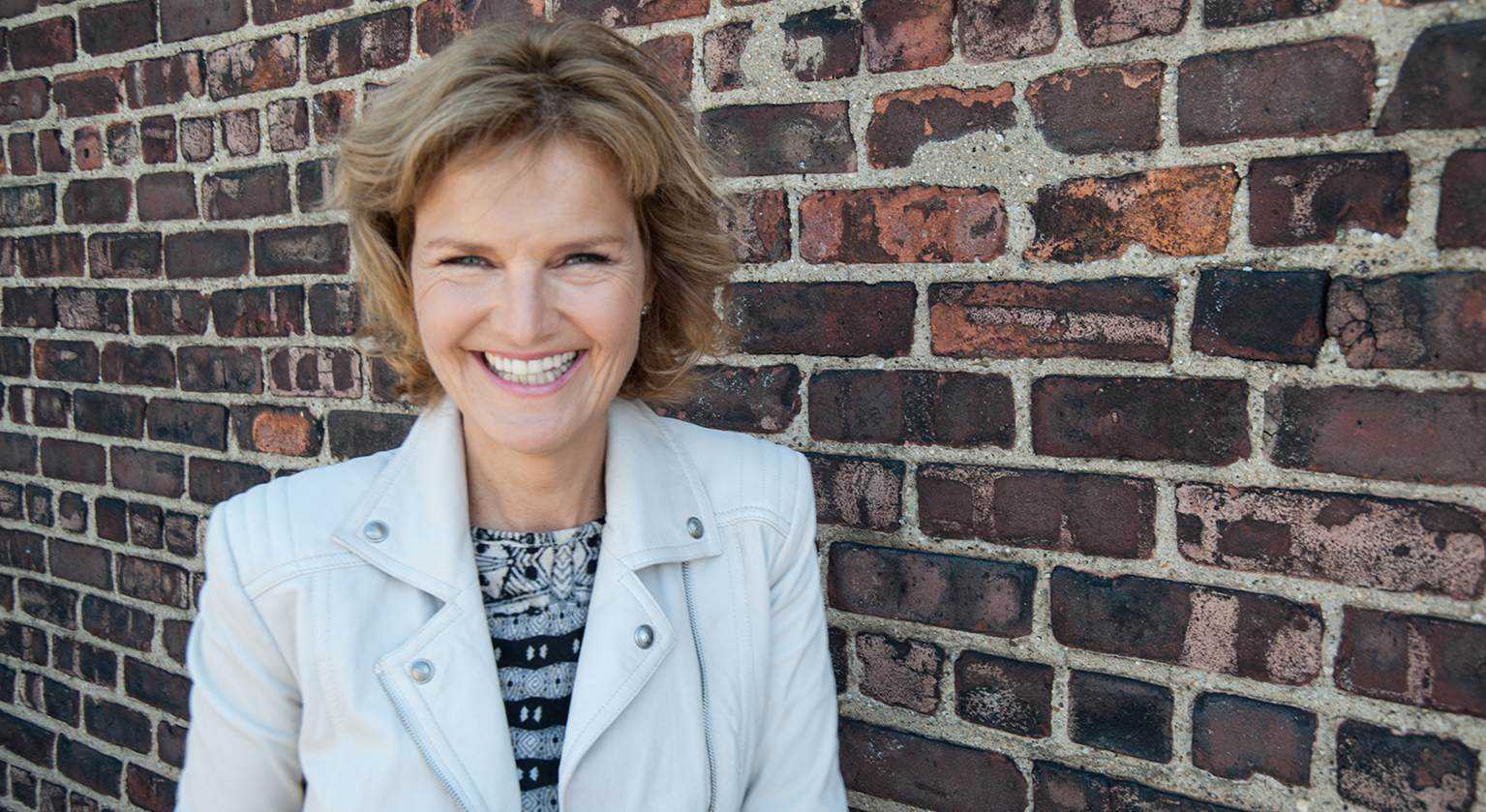
04 Oct Annette Herfkens
Photo: Paul Colliton
ANNETTE HERFKENS
Annette Herfkens, the sole survivor of the 1992 Vietnam Airlines plane crash, gives us a remarkable lesson of courage, humanity and compassion. Mrs. Herfkens survived for eight days in the Jungle, sustaining herself only on rainwater, keeping her focus on the beauty of her surroundings…
By Victoria Adelaide | OCT 23. 2017
Victoria Adelaide: You were born in Venezuela to Dutch parents and you grew up in the Netherlands. Would you say that your education somehow laid the foundations of your mental strength and prepared you psychologically to handle what would happen in your life?
Annette Herfkens: My upbringing had everything to do with everything. I grew up in a very loving family; my parents were married for sixty years until my father died, I have big brothers, one sister, and I had many cousins to play with, so I really had a good start in life. My father was very intellectual, very much into discussions, and I think the fact that I was the youngest child made me very inventive, made me able to follow my instincts. Because nobody was paying that much attention to me, I could really develop my own course. I had trust in my family and I really learned to trust my instinct I think at a young age. Because there was no other noise created by other people, it was just me.
VA: You were a bond trader in Madrid in 1992 when you visited your fiancé in Ho Chi Ming City and boarded a small plane to Nha Trang for a five-day romantic gateway. During the flight, your lives took an unexpected dramatic turn, can you tell us what happened?
AH: My fiancé and I left very early, too early for my taste because I had just arrived in Vietnam. We were going to have a romantic vacation on the South China Beach in Nha Trang. We were both working very hard as bankers and I was a trader. I traded emerging market debt and he was setting up two branches for ING Bank in Vietnam, and this was going to be a five-day romantic vacation on the South China Beach. I saw the plane, I said, ‘I don’t want to board that plane’, I’m very claustrophobic and he knew that. He told me it was only twenty minutes, I said Ok, so I boarded the plane; twenty minutes into the flight I asked why the plane was not starting its descent, and he said ‘Yes, I had to lie to you’, for me it was very uncomfortable being in a very small plane. At the fiftieth minute, we made a sudden drop, and then a big drop. My fiancé said, ‘this I don’t like’, and then I said, ‘Of course a shitty little plane like that always drops like that in an air pocket, it’s just an air pocket’. So, I was not afraid because I really thought it was an air pocket. It might have been the case, in the end we’ll never know. Later I found out that we were in the wrong spot at the wrong time and we were just on the other side of the mountain. We dropped, I heard accelerating motors and there was another drop, another big bang, and people were screaming. I looked at him, I reached out for his hand, he reached out for my hand, we looked at each other and then everything went black.
VA: What are your first memories when you regained consciousness after the plane had crashed?
AH: My first memory is the total shock of one moment hearing the sound of the motors and then the next moment, you wake up to the eerie sound of the jungle and the crickets. A noisy silence as I describe it. I looked around me and it was complete chaos, the cockpit had broken in two, at the front of the fuselage I could see the jungle. Then I looked on my left, there was my fiancé, still strapped in his seat and he was dead.
VA: You said you immediately started to make plans. Fear, panic, or even self-pity were not part of your mindset. In what kind of mindset were you then?
AH: I think I just stayed very very present. I just didn’t let my mind run off in soap scenarios, the first thing I had to do was to control my mind. Once I did that and I really stayed in the moment, then I could follow my heart, my instinct. I didn’t think ‘If there is a tiger, what if a tiger comes? Well I’ll deal with it when the tiger comes, right now there’s no tiger, or what if nobody comes?’. So, I forced my mind to really stay in the ‘now’ and then I could make a plan by following my instinct. The plan was, first, I’m going to give it 7 days, I’m going to give it a week, by Wednesday my co-head trader would miss me; I’m going to give him a few days. Then, I really needed water. So, I set a deadline; I was only going to suffer for one week, and within that week I needed water. I looked around and I saw that the isolation material of the plane could be used as a sponge because it was raining. So, I made seven little balls from that isolation material, I just let it rain and I soaked out water from there. I was very rational but at the same time I just felt very present. I focused mostly on the beauty of the jungle more than anything.
Photo Gallery Credits: Photo 1: Paul Colliton / Photos 2 & 3: Nguyen Doc Lap / Photos 4 & 5: Courtesy of Mrs. Annette Herfkens
VA: Do you think in our lives, an element of ‘luck’ or our mindset set our fate?
AH: Definitely. Luck was that I survived that air plane crash. That was a sheer luck, that could have just been completely different. I was not wearing my seatbelt. I was going like I describe in my book ‘As a long piece in the dryer’. Of course, surviving of the air plane crash is sheer luck. What I did after, I don’t think that was luck because there was nothing to be lucky but of course you could say that I was lucky I didn’t have more injuries. I had lots of injuries, of course I could have had more injuries and I would be dead, if I had internal bleeding I would have died also. I had pretty bad injuries but they were not bad enough to kill me. So that in itself is luck. I used to be a trader and I was really good at trading. I did that the same way, by staying in the moment, I listened to my instinct and did not let my little ‘me’ in the way. I listened to my bigger me, ‘my instinct’. Also, I was trained by my brothers and my cousins not to cry, so I was told to keep my emotions in check since I was very young. I was the only woman on the trading floor; there was no way I was going to cry ever. If I would have cried there, it would have made me very thirsty and weak. I think that was luck also that I happen to have a profession which didn’t warrant crying and that I had those brothers who told me ‘You can come and play with us if you don’t cry’. I don’t think that all traders think the same as I do, it’s just how I did it and I was pretty successful because I followed my instinct, I really believe that. Everyone can do that; you just have to control your mind in order to listen to your heart. Your mind makes up fear, your mind makes up stories, your mind makes all kind of stuff up. That comes in the way and if you just don’t let your mind come in the way, then the possibilities are infinite.
VA: You speak of the beauty of the jungle and the transformation that occurred within you, your shift into higher consciousness and experiencing ‘The Secret’. Can you describe how this mystical bliss felt during such a tragic moment?
AH: Well I describe it quite well in my book, it was really like euphoric that’s why the French will understand, because I compare it ‘The Big Mort’ to ‘La Petite Mort’. It was beautiful, euphoric. That’s why I like this French expression, ‘La Petite Mort’, that is exactly what it was like, beautiful…
VA: On the eighth day rescuers arrived and saved your life. Did it cross your mind that nobody would ever come save you?
AH: No, because I accepted my state, I didn’t defy it. By the time I was indeed dying, I accepted that I was dying, I just accepted it. I think the main thing is acceptance. First, accepting the fact that I was there, I was not thinking, ‘I should have been with my fiancé on the beach’, because then you get really frustrated and weak. So, I first accepted, ‘Ok so now you’re here, let’s make the most of it’, and when I started dying I accepted that I was dying. Then there was this man, who stared at me in the jungle, and brought me back to life, ‘The Orange man’. I would certainly have died, at that point I was no longer wondering if they were coming or not, I was just thinking, ‘Ok this is it’.
VA: How have these tragic events impacted your perspectives on life, your relationship with yourself and others, as well as your spirituality?
AH: Well, it was very difficult because I came back without my fiancé. On the one hand, I felt like I had lost my right arm, my other half, so I was in deep grief. On the other hand, I had this mystic experience, so I knew now that there was nothing to fear, but it was difficult to get back to life without him and with my changed perspectives, because my friends didn’t have changed perspectives. So, I felt more than anything that I had to adapt and act like I had not changed. Of course, my perspective had changed, but I forced myself to go back into the rat race, so I just went back to work because that was the only world I knew. My friends’ support was invaluable, , all my family, everyone’s support for me was invaluable. I appreciated of course all this tremendous love and attention that I got. My life was basically cut in two, it was before and after.
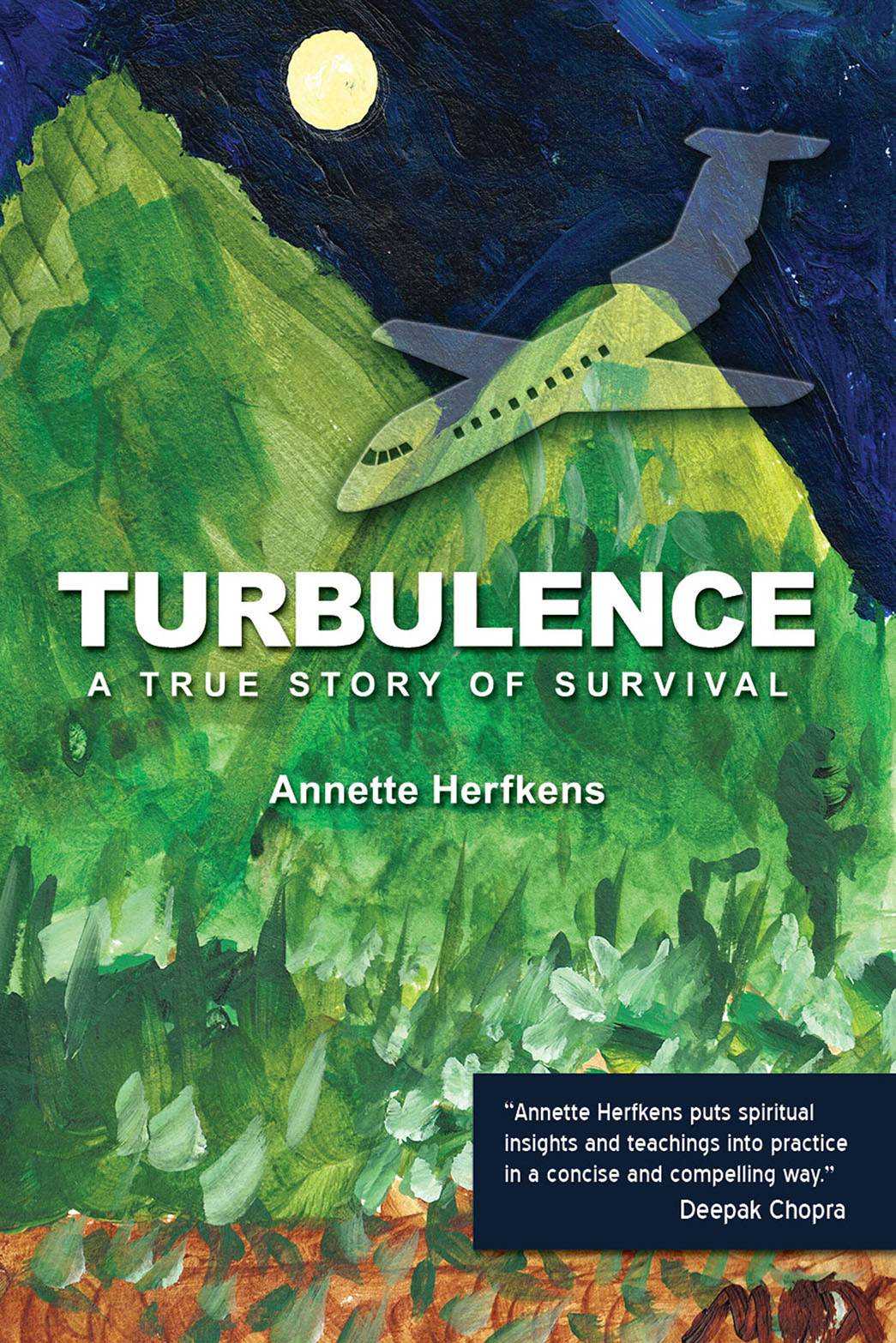
Artwork: Maxi Lupa
VA: Only two months after the accident, you went back to work and one year later you were promoted to Managing Director. How did you manage to be fit both physically and psychological after such a short period of time?
AH: Yes, I love my work, I have a fantastic job. I was trading on the phone, we were helping less developed countries to get rid of foreign debt, we invest in these countries. The only inconvenience was that I had to fly in order to do my job, so I had to overcome my fear. I had no choice. I was in Holland at that time and my job was in Spain, I was trading in London and New York so I had to really travel to London and New York all the time. It was either that or not doing my job. After I got promoted to managing director, that’s what I had, that’s why I continued.
VA: In 2006, for the first time after the accident, you decided to go back to Vietnam. Why and what prompted your desire to go back to Vietnam?
AH: I wanted to tell my story. I had no doubt that I was going to go back one day, and in the meantime, I also had my son who had autism. I’ve learned a lot from that too, I applied the lessons I learned in the jungle on accepting my son, but at the same time my son gave me tremendous new lessons. I compare my experience in the jungle to a vertical connection to God, to a higher self, the universe, whatever you want to call it. My son really opened me to a world of compassion I never knew that existed. And after all that I learned and loved and lost and after my father died, I just wanted to go back and see that place of beauty with my eyes. Also, in order to write a book (I’m a rational Dutch person), I really wanted to tell people that’s that looked beautiful to me. I just wanted to see it with my own eyes before writing it on paper and publishing a book. I also wanted to thank the people who saved me; I had many reasons to go back. There were more reasons to go back that not to go back.
VA: In 2014, you took another trip to Vietnam for the release of your book ‘Turbulence’ in the Vietnamese language, but this time accompanied by your daughter. Was it a wish of you both shared (to go together)?
AH: Yes, the wish of both of us. We worked together very hard on that book, she edited it because I wrote it in English, the publisher originally wanted to publish the story about the crash but he didn’t want the story about my son and I wanted both stories in the book. My daughter in the meantime has grown up, so I paid her one summer just to help me edit it and we self-published it together. So she was working for me, we went to the book fairs together, my son made the painting of the cover and it became like a little family company. So being there in Vietnam with me, it was really special for her, meeting the ‘Orange Man’; they held hands and she was able to thank him for being alive. It was very emotional, my daughter and I are very close and it was a very beautiful trip together.
VA: Your son was diagnosed with autism. How have your journey and your approach to spirituality helped you to handle the situation with Maxi?
AH: Basically, what I apply doesn’t necessarily apply only to special needs children. In the jungle, by accepting that I was there, by accepting what I did not have, my fiancé, the beach vacation and Nha Tran, I could enjoy what I did have, the beauty of the jungle. And that’s the same with my son; once I accepted that I did not have a typical child, who would do typical things, it’s difficult to accept that, but once you accept it, then you see what you do have. And my boy is really really special, I call him my Buddha; he teaches me to be in the moment on a daily basis. Of course, during the accident I was very spiritual with those eight days in the jungle, but going back to business, then I’m normal again, very human and I’m nasty, I’m jealous, very human. A boy like this has no favorite political party, that’s truly unconditional love. If you get love from him it’s unconditional. So when you accept, what your child doesn’t do, then you can see what he can do and it’s a miracle. Any child is a miracle.
VA: What is the best advice you would like to give to parents of autistic children?
AH: It is really hard. Seek other parents’ help, advice; there is much more help out there than there used to be. There is one thing I’ve learned from the Americans, it’s that it helps to connect with people who are in the same situation. Because that’s what Americans do. I brought my daughter at a very young age to a siblings group for autistic children so they could talk about it. I think it really helped to express; it helped her to accept, and also him because he could express what she felt. Because there were all those other kids who also had a little brother or a little sister who broke or threw away their toys in the toilet, or got all the attention at home, and it’s hard on the siblings. That’s also what I am trying to say, the beauty of something bad that happens to you, indeed my accident or my son’s condition, is the connection you get with others because of it, because I really connected to all the victims of the crash. The beauty is in the connection. Instead of pushing that world away, because you think ‘Oh I don’t fit in that world, I’m not like that, I’m too good for that’, that is really a waste because that world is beautiful. There could be other parents who are just like you and you could have an instant connection with them. It’s a beautiful world, it’s not about how fat or how thin or how attractive you are, you go way way way beyond that in that world. It’s a beautiful world.
VA: After all you’ve been through, do you think happiness is truly a state of mind and most importantly in spite of everything are you happy?
AH: I’m happy yes. I’m happy with what I have and I have a lot, you know, I have a lot. Absolutely happy, yes.
...I'm happy yes. I’m happy with what I have and I have a lot, you know, I have a lot'``

